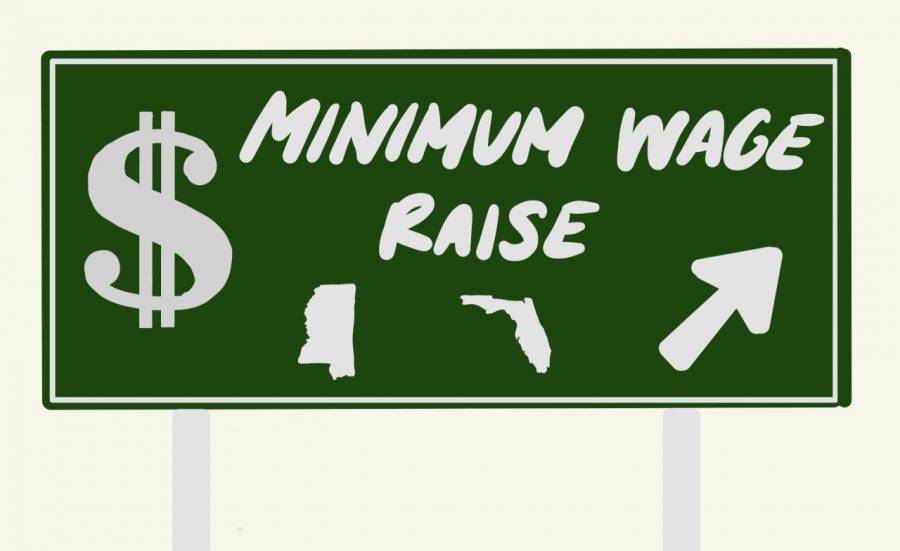Cheater: Don’t be a minimum effort politician; raise the minimum wage to $15 an hour
This year, states such as Florida voted to raise their minimum wage to $15 an hour.
November 18, 2020
Due to our instant gratification culture, politicians are continuously looking for ways appease lazy voters claiming they want change—most notably by supporting the increase of the minimum wage. Some say the magic number is $15 an hour while others, like Mississippi, have no minimum wage and default to the federal level of $7.25 an hour (about $15,080 annually).
What these advocates for economic change fail to realize is the complexity of our multi-layered economic system. Make no mistake, the Federal Government absolutely needs to raise the minimum wage to $15, but it positively needs to be accompanied by other policies in order to be effective.
Let’s go through the numbers. Say the Federal Government raises the minimum wage to $10 an hour (about $20,800 annually). This will not only increase capital by 4.0% but also increase workers’ output by 1.8%. This is because when people are paid higher wages, they tend to have a higher sense of purpose and therefore work harder.
So, what happens if we raise the minimum wage to $15 an hour (about $31,200 annually)? It would not only raise the wages of 41.5 million workers (29.2% of the U.S. workforce) but also improve their living conditions, lifting many out of poverty.
So what happens to businesses? Do they go bankrupt? Hire machines? Not quite. Raising the minimum wage will cause an increase in automation, but also an increase in productivity and a reduced worker turnover rate, thus offsetting the majority of the company’s higher wage expenses. Reducing worker turnover rate drastically decreases businesses’ costs and thus allows them to increase the number of workers they can hire.
But I know what you’re thinking. Let’s get to the important part – will things cost more at Target? Yes – by about 0.6% – well below what it usually increases every year due to inflation, which is typically 1.7%. Restaurants, however, will have to raise prices by about 4.3%.
What does it mean directly for Mississippi? If the ‘Sip implemented a $15 an hour minimum wage, there would be about 90,000 more jobs by 2024 (assuming the minimum wage raises gradually every year until it reaches $15 an hour).
Economic models do predict, however, raising the minimum wage past $15 an hour would have significant negative employment effects. And if it stays where it is, $7.25 an hour, millions of American citizens will remain in poverty-level conditions.
However, raising the minimum wage will also bump many Americans up a tax bracket, decreasing their overall earnings. $15 an hour does little unless it is paired with an expanded Earned Income Tax Credit (EITC). Basically, an EITC refunds tax money to low-to middle-income persons and families, particularly those with children. If EITC is not expanded, individuals’ increased wages go to the government and not them.
Thus, the solution is clear: raise the minimum wage in conjunction with expanding the EITC. It will not only benefit the country, but also Mississippi. Florida and many other states have already voted to raise theirs, so don’t be afraid to contact local representatives. Demand a better future for working-class Americans. Minimum effort will produce minimal results.









